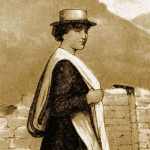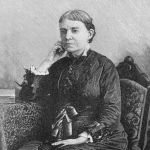1. ON ASPHALT: NO GREENS
Quarry out the stone
of land, cobble the beach,
wall surf, name it “street,”
allow no ground or green
cover for animal sins,
but let opacity of sand
be glass to keep the heat
outside, the senses in.
Then, when time’s Drunk,
reeling to death, provokes
god’s favor as a fool,
oh let a lamp post grow
out of its absence, bend,
heavy with care, and bloom
light. Let a curb extrude
a comfortable fault. Let
“street” become a living room.
Comfortably seated, lit
by the solicitude of “lamp,”
the Drunk and street are one.
They say, “Let’s have no dirt:
bulldoze the hills into
their valleys: make it plain.
Then take the mountains down
and let their decks of slate
be dealt out flat grey.
Let their mating seams
be tarred against the weeds
by asphalt, by the night’s
elixir of volcanoes hotly poured.”
Then the soulless port at night
is made a human, and the Drunk
god: no one else is here
to be so but who cares?
2. PORTRAIT AGAINST WOMEN
Bones, in his falling,
must have hit the skin
between themselves and stone,
but distances of wine
were his upholstery
against the painful crime
of lying in the street,
since “God protects them.”
He rolled onto his back,
his right hand in his fly,
and gargled open-mouthed,
showing the white of an eye:
it did not see the sign
raised on the proper air
that read: “Here lies
a god-damned fool. Beware.”
No: his hand, his woman, on
the dry root of his sex,
debates it: deformed by wine
and fantasy, the wreck
of infant memory is there,
of how the garden gate
slammed at the words, “Get
out you god-damned bum,”
and so he was, since she,
goddess, mother, and wife,
spoke and it was the fact.
Her living hair came out
gray in his hand, her teeth
went false at his kiss,
and her solid flesh went slack
like mother’s. “Now, lady,
I am sick and out of socks,
so save me: I am pure although
my hand is on my cock.”
Then he could rise up young
out of his vagrancy
in whole unwilled reform
and shuck the fallen one,
his furlough in this street
redeemed by her grace.
There would be the grass
to lay her on, the quench
of milk behind the taste of wine,
and laughter in a dreamed
jungle of love behind
a billboard that could read:
“This is YOUR Garden:
Please keep it clean.”
3. courage. EXCEED.
A beggar with no legs below
the middle of his knees
walked down Third Avenue
on padded sockets, on
his telescoped or
anti-stilted legs
repeating, “Oh beautiful
faspacious skies!” upon
a one-man band: a bass
drum on roller-skates,
a mouth-high bugle clamped
to it, and cymbals interlocked
inside a fate of noise. He
flew the American flag
for children on a stick
stuck in a veteran’s hat,
and offered pencils. He
was made of drunks’ red eyes.
He cried, “Courage! Exceed!”
He was collapsed in whole
display. Drunkards, for this
and with his pencil I
put down his words drunk:
“Stand! Improvise!”
4. ELEGY FOR DRINKERS
What happened to the drunks
I used to know, the prodigals
who tried their parents’ help
too far? Some misers of health
have aged out dry; the rest
are sick and out of socks,
their skin-tight anklebones
blue as the mussel shells
that rolled in Naxos’ surf
when Bacchus danced ashore
and kicked them all to hell.
Oh gutter urinal,
be Dirce’s holy stream,
so lightning out of Zeus
can rage on Semele,
invited! Permit her son,
issuant of His thigh,
to rule her family
as Bromios, god of wine!
Oh Dionisos, good god
of memory and sleep,
you grace the paper bag,
stuck in the fork of a crutch,
that holds the secret sons
and furniture of bums,
since wine is the cure of wine.
It’s thanks to you that I,
in my condition, am
still possible and praising: I
am drunk today, but what
about tomorrow? I burnt
my liver to you for a drink,
so pay me for my praises:
for thirty-seven cents, for
the price of a pint of lees,
I would praise wine, your name,
and how your trouble came
out of the east to Thebes:
you taught the women wine
and tricked King Pentheus
to mask as one of them:
because his father died
to all appeals for help,
the rending penalty,
death at his mother’s hands!,
still fills The Bowery
with prodigals of hope:
they pray for lightning and
a dance to their god damn,
since wine is the cure of wine
and wine the cure wine cured
and wine the cure of wine.



















Comment form: